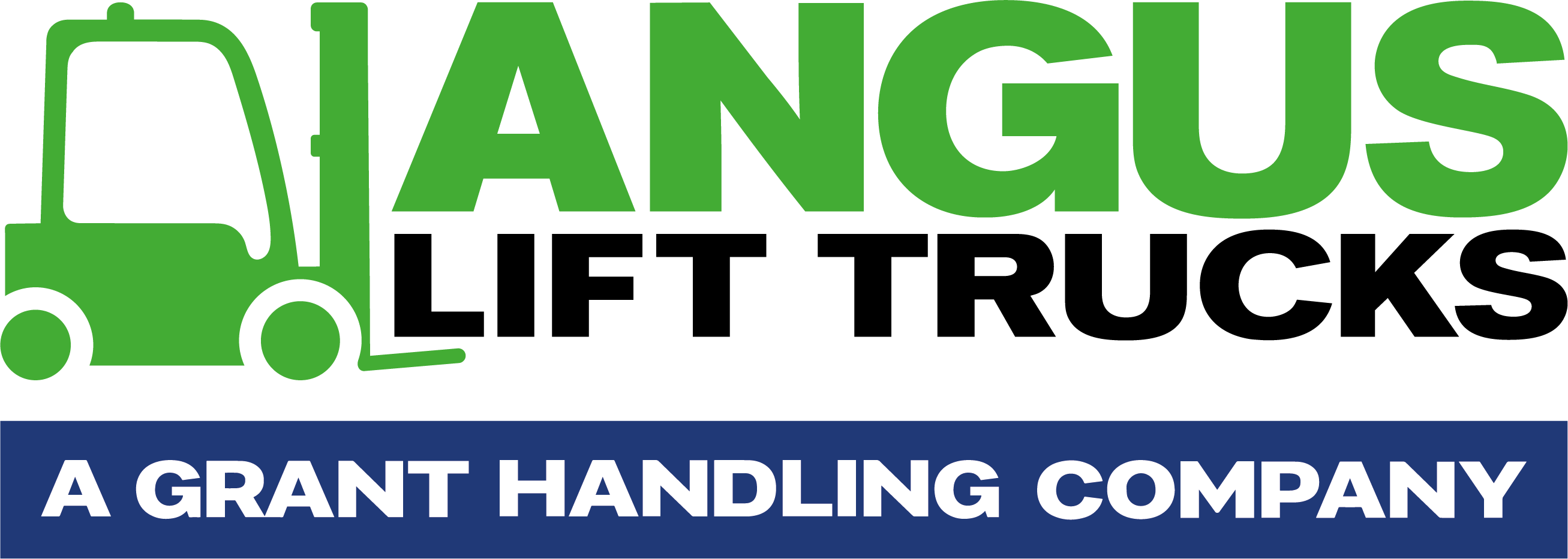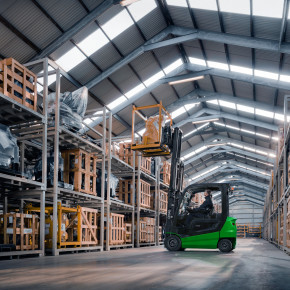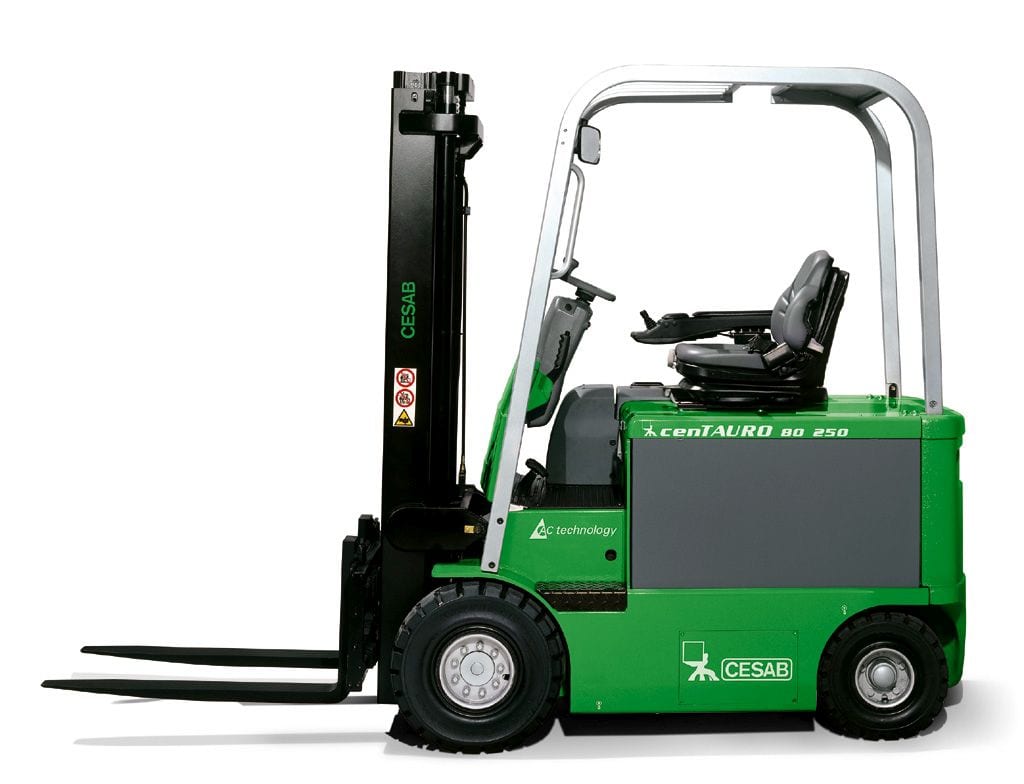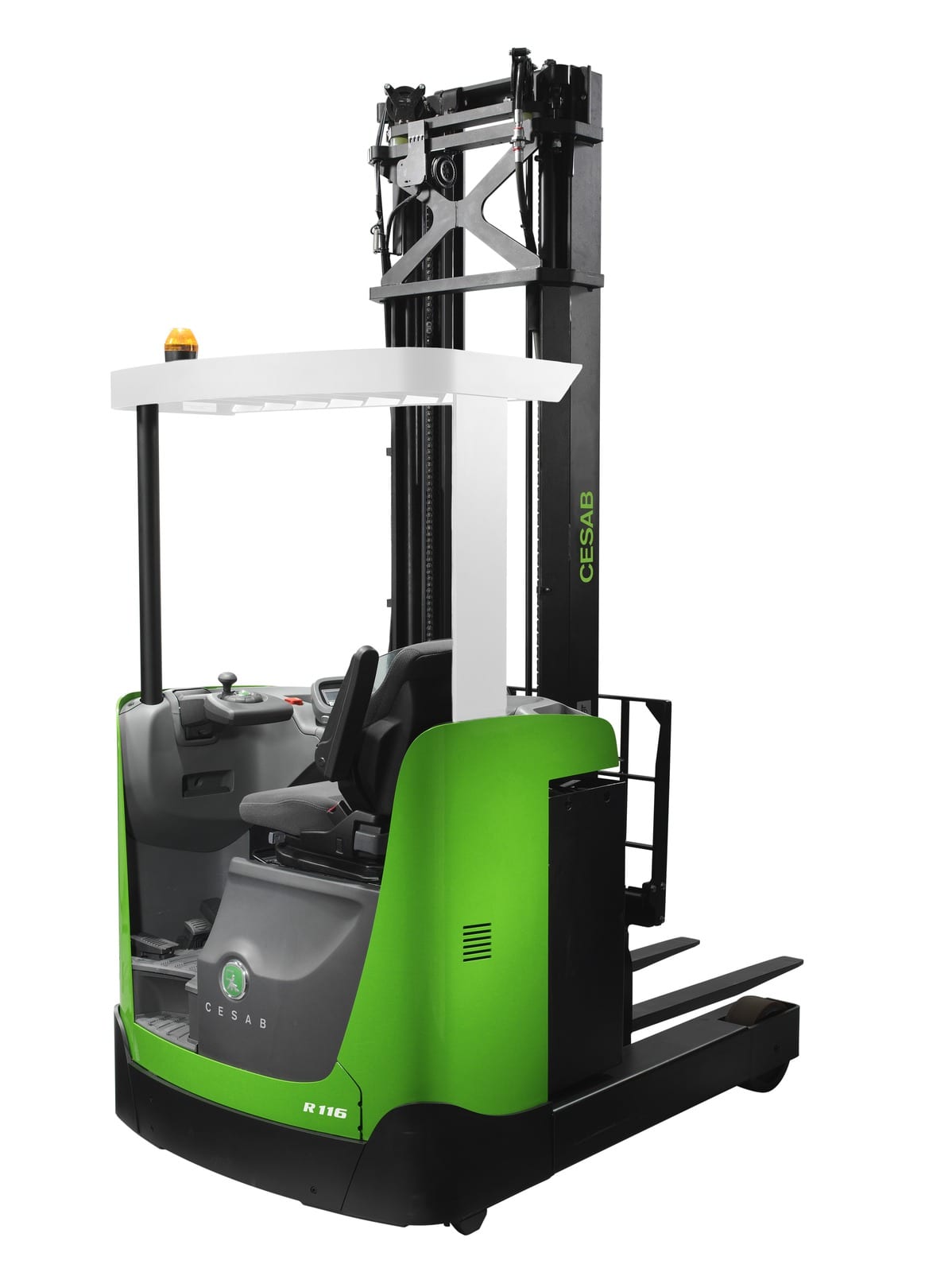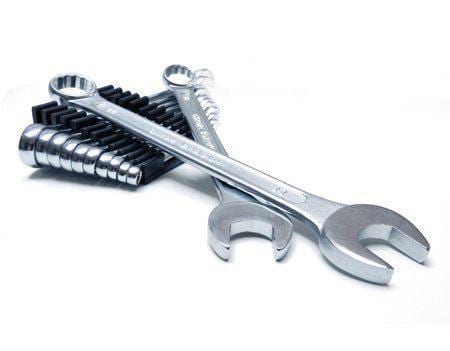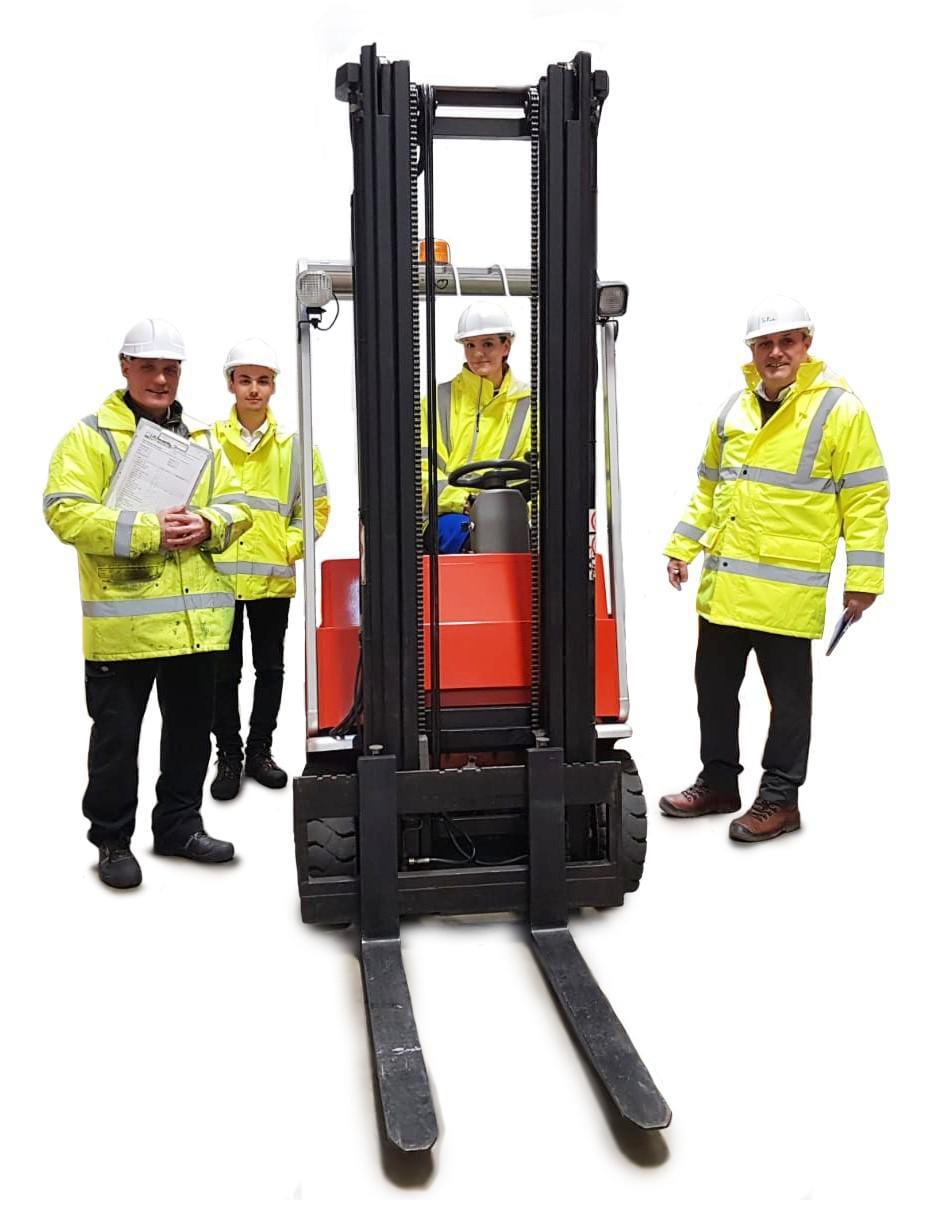We use lithium-ion phosphate to power batteries in all sorts of vehicles, from Teslas to golf carts. It’s no wonder, then, that lithium-ion forklifts keep catching the eyes of potential forklift buyers.
Are these clean-powered machines all they’re cracked up to be? Will they be ruling the world by 2033?
Let’s find out!
The Tech Behind Lithium-Ion Batteries
To understand whether you should buy or rent lithium-ion Phosphate batteries and the forklifts they power, it helps to understand how lithium-ion batteries work. This will also make some light on how to maintain it, should you decide to purchase one of these forklifts. After all, Lithium Ion Phosphate (LiFePO₄) batteries are a type of lithium-ion battery with a few unique features.
Lithium-ion batteries have three parts:
- Anode
- Cathode
- Electrolyte
The anode, usually graphite, sits on one side, and the cathode, made of a metal oxide that contains lithium, sits on the other. The electrolyte material, often lithium salt, sits between them.
Lithium has a high electrochemical potential. In other words, it likes to give away its one electron, creating a lithium ion. The lithium ions can and do move from the cathode to the anode via the electrolyte material. The electron which the lithium molecule gave up, however, cannot pass through the electrolyte.
A connected power source attracts the electrons while repelling the lithium ions. The lithium ions, then, move from the cathode through the electrolyte. The electrons have to take a separate path through an external circuit and thereby produce electricity.
Graphite, which acts as the anode, is layered. The lithium ions and their free electrons end up trapped within its structure. Once they have all arrived there, the cell is charged. However, a charged cell is unstable. Think of it as a bouncy ball at the top of a steep hill; it wants to roll one way or another!
So, when you remove the power source, the entire process reverses. Lithium ions travel back through the electrolyte, and electrons travel back through the external circuit. This creates an electrical current, by which we can power all sorts of things, including forklifts.
What Makes Lithium Ion Phosphate (LiFePO₄) Batteries Special
For the last several decades, the most common lithium-ion batteries relied on lithium cobalt oxide for their cathodes. Recently, though, human rights and environmental groups have brought up several legitimate concerns surrounding cobalt.
Cobalt mining releases CO2 into the atmosphere, making it a contributor to global climate change. Plus, cobalt mining as an industry often relies on child labour. The conditions are far from safe, and run-off from the mines can enter local water supplies. If that happens, it may lead to congenital disabilities and other serious health issues.
On top of that, lithium cobalt oxide isn’t very stable. In warm conditions, the electrolyte within a lithium-ion battery can dry up. If this happens, the battery will short circuit, which can cause a fire or an explosion.
Lithium-ion phosphate is far more stable thanks to iron’s oxygen bonds. So, there’s no risk of overheating or explosion. On top of that, lithium ion batteries rely less heavily on cobalt, negating many human rights and environmental concerns.
Advantages of Lithium Ion Battery-Powered Forklifts
It’s clear that lithium ion batteries have advantages over standard lithium-ion batteries, which contain cobalt, but that doesn’t tell us much about how they work inside a forklift. What might the advantages be? How does a company benefit from lithium ion forklifts, and is it worth the cost to implement these newer machines?
Well, there are a few significant advantages to lithium iron forklifts. For one thing, they’re incredibly safe. You don’t have to worry about them overheating or causing a fire because LiFePO4 is relatively stable.
The advantages go well beyond safety, though. Lithium Ion forklifts also:
- Provide consistent power
- Charge quickly
- Require next-to-no maintenance
- Are better for the environment
- Require Fewer Batteries
We’ll zoom in on each of the above advantages below.
Consistent Power
With a traditional lead-acid battery, power output decreases as the battery loses charge. That’s not the case with lithium-ion batteries. Lithium-ion batteries give consistent power throughout the life of the battery’s charge.
Whether you hire a single forklift or a full fleet, consistent power is nothing to scoff at. It will allow you to predict future performance better. You won’t have to factor in declining forklift power when defining and measuring productivity goals; that’s better for your business and your customers.
Quick Charging
With a regular lead-acid battery, heat is the enemy. As you use your forklift, heat increases, and that heat wears away at the lead inside the battery. To counteract this, best practice demands you do two things with a lead-acid battery forklift:
- Charge the battery to full every time; don’t over or underfill
- Allow the battery a cool-down period after charging
Both these practices take extra time, and as the saying goes, time is money!
With a lithium-ion battery in your forklift, you can opportunely charge without damaging the battery. That means your forklift operator can charge his or her machine during their break or lunch. They don’t have to wait for the machine to fully charge before using it.
Plus, lithium ion batteries don’t need cool-down times. Using them directly after charging won’t damage the device.
Low Maintenance
Lead-acid batteries require watering, equalizing, and cleaning to keep them running properly. There’s no need for any of that with a lithium battery. Less maintenance on forklift batteries means more forklift hours and better productivity.
Less Environmental Cost
Lithium-ion batteries that use LiFePO₄ are obviously better for the environment than gas or diesel powered forklifts. They don’t release CO2.
On top of that, though, lithium-ion batteries don’t have lead or sulphuric acid-like traditional batteries do. Though conventional batteries are recyclable, the WHO reports that lead and other components within them can cause significant environmental contamination and human health concerns.
Fewer Batteries Overall
One lithium-ion battery can take the place of several lead-acid batteries for forklifts. That means less battery storage and less cost in the long term.
Even better, you won’t be storing lead-acid filled batteries. Acid splash is a hazard for those switching out and maintaining lead-acid batteries, a hazard you can avoid entirely with lithium ion forklifts.
Looking to Buy or Hire
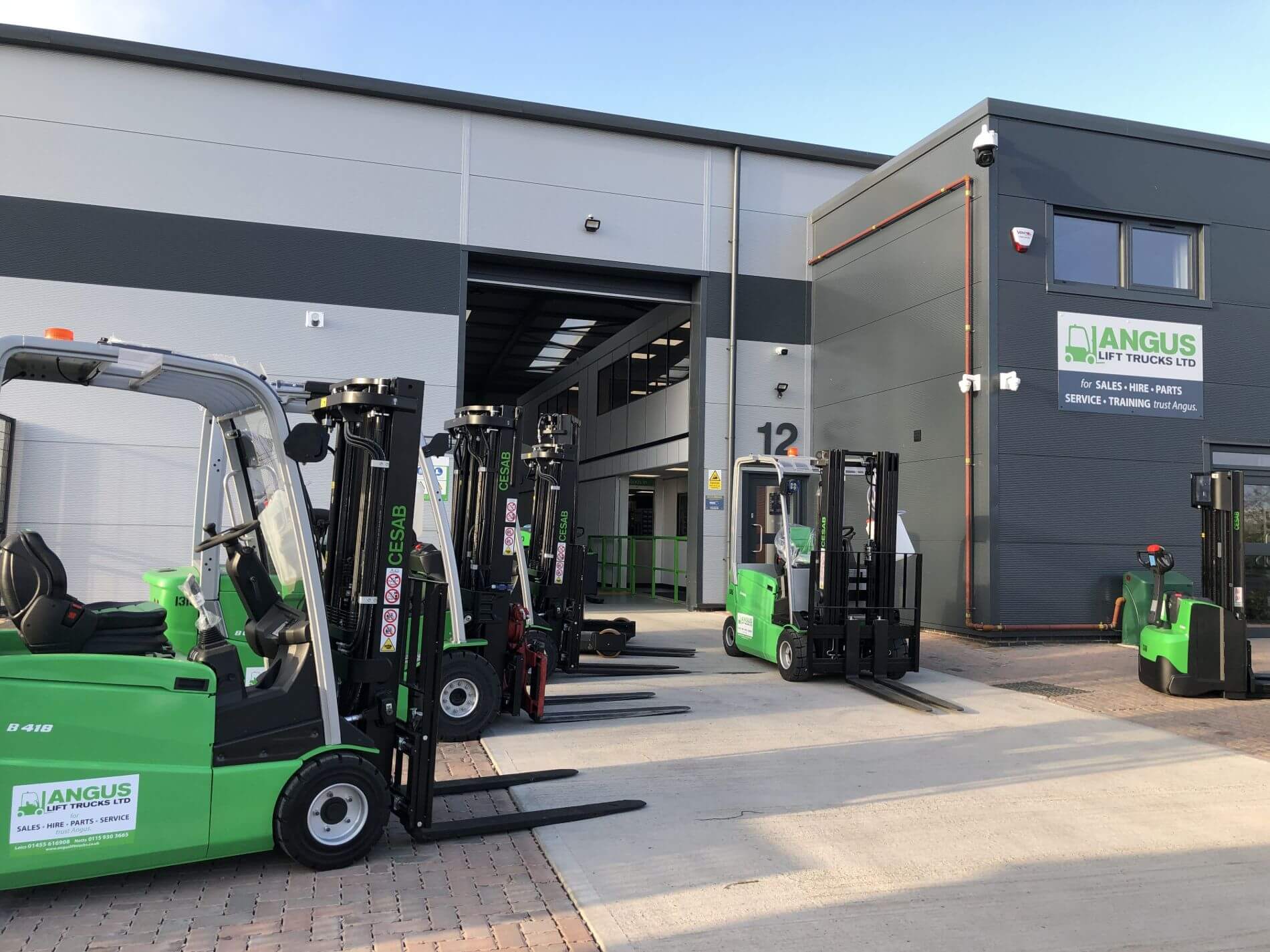
a forklift?
With 35+ years of experience, we offer our most competitive rates, flexible finance, 4h service promise & more!
The Downsides of Lithium Ion Phosphate Batteries
Overall, lithium-ion phosphate batteries are far superior to lead-acid batteries, diesel, or gas in most circumstances. However, there is one major downside.
Lithium ion forklifts can be expensive to buy (though not always). They run around three times the price of a lead-acid battery machine. Of course, they also charge faster and typically last longer, which means the upfront cost is truly that.
Long term, you can expect to save money by switching from lead-acid battery forklifts to lithium ion powered models.
The only other potential issue comes from recycling costs. You can and should recycle lithium ion phosphate batteries when they reach the end of their lives. And, they are less harmful to the environment than lead-acid batteries overall.
However, lithium ion phosphate batteries are a relatively new technology. Most of them are still in use. That means recycling programs for these batteries are in their infancy and may charge high fees for recycling. Over time, the recycling fees should go down as the recycling programs become more efficient.
How Lithium Ion Compares to Gas, Lead-Acid Batteries, and Diesel
If you want to compare a lithium ion phosphate powered forklift to one powered by a traditional battery, diesel, or gas, the lithium-ion phosphate model will almost always win.
Lithium-ion forklifts are better for the environment, as we covered above. They also cost less in maintenance and can charge quickly. Plus, they offer consistent power throughout their charge, unlike traditional batteries.
In certain situations, though, a gas or diesel forklift may be better suited to the job at hand. Gas and diesel don’t need charging at all, which may be necessary for specific situations. They also may be more manoeuvrable, depending on the design.
The Future of Forklifts
So, will lithium-ion forklifts rule the world one day? It’s hard to say for sure; we don’t have a crystal ball. Yet, given current technology, it sure seems like they will!
Gas and diesel are dinosaurs, slowly making their way to extinction. The world demands clean energy, and that means less reliance on old ways. It also means lithium-ion energy is here to stay, at least for a while.
Forklifts won’t be an exception. In the same way that vehicles of all types are moving towards cleaner, more efficient energy sources, forklifts will do the same.
Electric forklifts have always been at a disadvantage. They’re costly to maintain and take a long time to charge. Lithium-ion batteries change all that. They get rid of virtually all maintenance, and you can charge them in opportune spurts.
Plus, lithium-ion phosphate differs from the old lithium-ion batteries. It’s more stable and contains next-to-no cobalt, making it better for the earth overall.
You may also like
We won’t be surprised if, a few years down the road, lithium ion forklifts rule the world. At the least, they’ll be much more prevalent in warehouses, factories, and stores. Do get in touch with the team at Angus Lift Trucks to find out more; we are approved partners of CESAB and work with leading brands like Baumann, Genie, Combilift, Hako, Egholm, to name just a few. And, if you are looking to purchase a forklift or a fleet, and need more information of what works best for your projects, we serve the entire Midlands, in areas like Leicestershire, Nottinghamshire, Northamptonshire, Birmingham, Warwickshire, Derbyshire, East Midlands & West Midlands.
This post is also available in:
Français
Deutsch
Italiano
Português
Español
Български
Hrvatski
Eesti
Latviešu
Lietuvių
Polski
Português
Русский
Slovenčina
Slovenščina
Türkçe
Українська
Albanian
Čeština
Dansk
Nederlands
Ελληνικά
Magyar
Română
